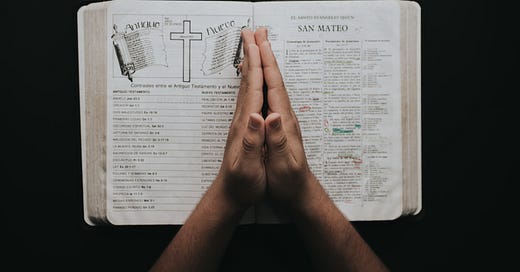
The original purpose of universal public schooling was to indoctrinate children. I do not mean to use this word unfavorably. Indoctrination in public schools was seen as necessary to get citizens and immigrants alike to buy into the American ideal. Mass public schooling was created to socialize people from different religions and nationalities into a unified culture and community called “America.” Schools have since shifted to focus on learning knowledge and skills to prepare for the workforce and climb the social ladder, which is another form of indoctrination—if you want children to work in adulthood, you instill in them the value of work in school.
Because public schools are governmental entities, they are political—taxpayer-dollars support them, and local, state, and federal governments either run them, make policies for them, or grant funding to them. Federal governmental authority is tied to funding, thus schools must follow the mandates tied to the funding they apply for and/or accept. Individual states pass laws that govern the schools within their state, and school boards pass resolutions and adopt curriculum in accordance with state laws. School administrators and teachers must abide by the laws passed and follow the prescribed curriculum. Essentially, the job of a public school teacher is legislated and regulated.
The purpose of public schools generally aligns with what decision-makers at these various levels of governance determine is needed of citizens at any given time: Do we need to create and fill more jobs in the STEM (science, technology, engineering, and math) field? Start STEM programs and open STEM schools.
Public schools, as well as private schools, are also political because they inevitably absorb and respond to the cultural current of the day. The instinct of teachers and administrators may be to avoid discussion of cultural issues, especially when they are deemed controversial, but students likely enter the school and classroom with the issues on their minds. Some argue that K-12 schools is where knowledge is to be transmitted and post-secondary education is the place where young people can debate the merits of ideas. I understand the concerns that teachers will push their ideas on impressionable minds who are required to take their classes, but this seems like a teacher training issue, and an issue that can be remedied through existing laws. Plus, where will young people be prepared to debate ideas they will encounter in higher education if not in high school? And what about those who choose not to continue with formal education after high school? When do they get the pleasure of the time and space to debate ideas?
Learning to debate ideas does not align with the purpose of public schools. Learning for the sake of learning was not the original purpose of universal, government-operated schools, and isn't necessarily the purpose of schooling today. As such, the mantra of "teach students how to think, not what to think" is laudable but not necessarily in the DNA of public schools. Actualizing the mantra requires a shift in mindset about why modern-day public schools exist, what is their purpose, and what is the role of the teacher.
To bring the mantra to fruition, a liberal education education makes the most sense as the telos—highest purpose—of public schooling. In a liberal education, the focus is on developing the individual, one who is expected to self-govern in a free society. In a Western context, this requires knowledge about the history of democratic decision-making and the ability to think critically. Liberal educators "focus on helping students develop an ability to weigh evidence, evaluate views and potential truths, detect contradictions, form and articulate opinions, and respond to those who disagree." Some argue that schooling as an individual good, rather than a public good, will lead to inequality. But preparing all children to think critically, with historical knowledge, would surely lead to improvements in society, both interpersonally and economically.



